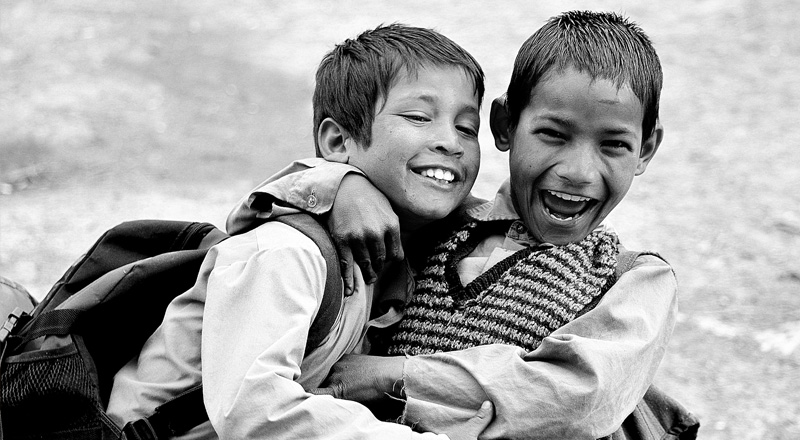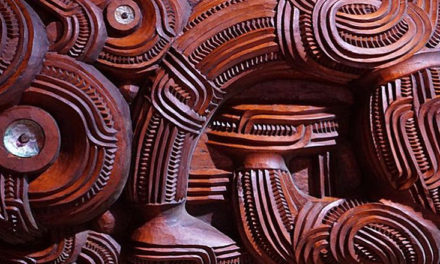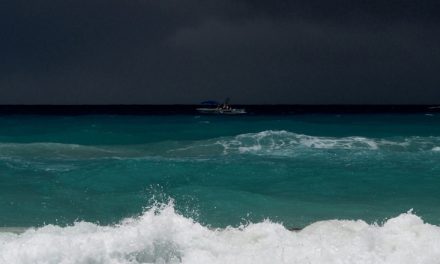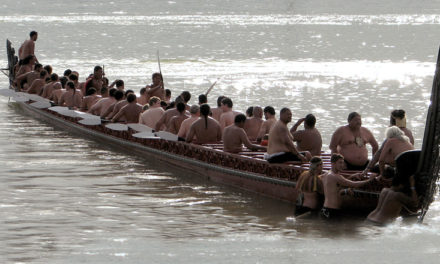Accountability Builds Community
Tena tātou katoa e te iwi mīhana… (Greetings to all the people in mission),
This month’s whakataukī (proverb) is usually directed in a disciplinary tone to young people: “Kia whakatupu tangata, kaua hei tutū” (behave well as one of the people, don’t be obstinate). It’s a challenge to nurture or grow in one’s responsibility to the community, to contribute well, to honour the people and not stand apart, arrogantly defiant or rebellious.
I don’t hear it much anymore but when I was younger the term “oh, grow up” was often used to shame someone for their immaturity in word or action. It indicated a person was acting out in an unreasoned manner, being led by raw emotion, lacking logic, or acting irresponsibly. Either way, the person was being called to account. It was a reminder that they had a responsibility to those around them to behave in an appropriate manner.
As 2018 drew to a close I received a rude awakening. A slight overreaction. This situation simultaneously sent a cold spike of fear up my spine for the future of humanity and shocked me with the possibility I was becoming a grumpy old man. A kid rode his tricycle drift bike into my parked car.
It wasn’t the action that bothered me. It was an accident, albeit inevitable from my standpoint watching from an upper level deck. I saw the boy start off down the hill and I calculated his trajectory around the corner to where my car was parked. Thankfully he threw the bike into a tight enough turn so as not to drift full force into the back of my car. Instead, he manoeuvred it such that it scraped the side and he avoided a head-on impact.
It was the response of his parents that pushed my panic button. The family was out for an evening stroll and were right behind the boy when he abruptly met my car. He was roughly pulled off the trike, the elder male briefly looked at the car and they all carried on their way—leaving the trike hard up against the car! Naturally, I went down to check the damage, put the trike up on the grass verge and waited for them to return to address the issue.
I continued chatting with friends up on the deck overlooking the road as the family returned. The elder male rubbed the damage on my car, picked up the trike and the family carried on their merry way without any acknowledgement, while I waited in vain for some apology.
It may have been an accident but he was still responsible for the consequences.
An implicit lesson that boy learned from that incident was that he is not socially accountable for his actions. It may have been an accident, but he was still responsible for the consequences. The car may have had mere cosmetic damage that buffed out with some cutting compound, but he would have learned an important life skill by being made to apologetically confess to the owner and receive an appropriate response.
I’ve dodged my fair share of consequences by not owning up to actions that had negative impact on those around me—I suspect we all have—but this incident reminded me afresh of how easy it is to avoid responsibility in highly individualistic societies. Everything around us teaches us to look after number one. We rarely get encouraged to civil responsibility any more. We are not implicitly expected to nurture our contribution to society, let alone lay aside our personal preferences for the good of the whole.
Freedom is not an escape from accountability.
Peter Block develops the twin concepts of freedom and accountability in his book Community: The Structure of Belonging. We enjoy a great deal of freedom in our society but, as Block argues, “Freedom is not an escape from accountability, as the popular culture so often misunderstands… our willingness to care for the well-being of the whole occurs when we are confronted with our freedom, and when we choose to accept and act on that freedom (for collective good).” People who desire freedom but choose not to be accountable are destructive to community. Block puts consumers in this camp and deftly explains why consumers are not as free as they like to think. Rather, they give their power away to producers, allowing others to define their needs. Life becomes an illusion of egocentrism—’I exist to fulfil my needs… which others define for me’. Trike boy and his family, by avoiding accountability, were driven by needs too—to avoid shame, confrontation, repair costs… whatever the need, it wasn’t to create community.
In his latest blog post, Carey Nieuwhof criticises consumer-oriented Christianity. He emphasises the need for all Christians to make positive contributions to their communities (i.e. churches). Rightly so. Christ has set us free—to choose to invest our lives in love for/to one another, as a witness to wider society. Following Jesus is never meant to be a solo affair. Nieuwhof maintains that (churches’) mission requires (collective) engagement. I think the image above expresses this well. The boys look totally free with each other and you get the sense that they’re also brothers in arms, there for one another through thick and thin. This is the point of the proverb. Don’t be standoffish, considering yourself better than others. Instead, consider others better than yourself (cf. Philippians 2:3). Get involved, contribute well, own up to mistakes, receive forgiveness, learn, grow, be transformed.
Missions tend to emulate this, with highly engaged members thrown together in outrageous diversity. Let’s never forget that we exist as the Body of Christ to be a community and we all need to contribute together toward that. That’s how we #stayonmission.
Nga mihi nui o te Tau Hou (warmest greetings of the New Year to you),
Jay






